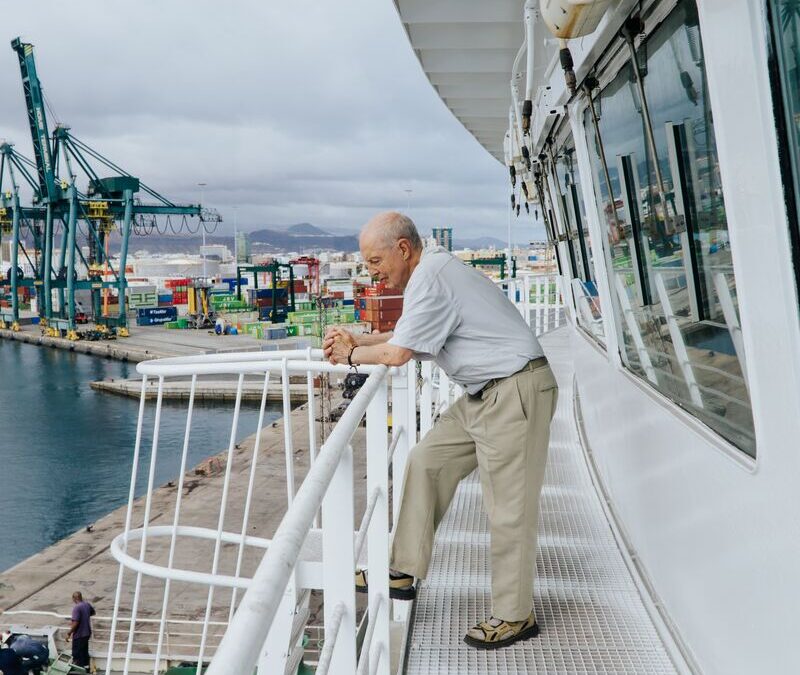For Mercy Ships senior biomedical technician Nick Brown, it can be easy to forget that his workplace is not an ordinary hospital, but instead, one floating at sea.
“On the engineering side, it is very much the same as a modern hospital,” shared Nick about the Global Mercy™, the newest, purpose-built ship in the fleet. “We do have all the Internet accessibility. We do have all the state-of-the-art and up-to-date equipment. We are very fortunate.”
But on board the Mercy Ships fleet, Nick’s skills are part of a much bigger picture – bringing hope and healing to life for many hundreds of people through safe, free surgery and surgical education.
Nick first joined the Africa Mercy® in 2021, as a 75-year-old healthcare veteran and invested two years volunteering across five countries in three different occupations. Later transferring to the Global Mercy during its equipping phase, Nick used his expertise to draw out the greatest potential of each piece of medical machinery, which play an essential part in safe and successful surgeries.
“Even though the equipment is very much the same, from the engineering side, you really get to appreciate the applications that machines are put to here in field service, which probably they wouldn’t get exposed to in the ordinary hospital situation.Your experience really would be a lot more than the average biomedical technician or engineer.”
A Hammer for Every Nail
Nick finds his own flexibility tested daily, as often as his tools, since “the equipment that is called for and used really gets put through its paces for different applications.” But he believes that variety of experiences is exactly what prepares him, making him more than qualified to help solve any problem posed to the surgeons.
“The advantage to an engineer is that he or she would get exposure to so many more pieces of equipment in situations with equipment going wrong because of applications that they’re not normally expected to be involved in, and therefore, some pieces of equipment are really being worked hard,” shared Nick. This leaves room for plenty of opportunities for hands-on problem-solving and countless learning moments.
What Does a Normal Day as a Biomed Technician Look Like?
Day to day, you could find Nick working down in the biomedical workshop situated outside the operating rooms on board. It’s a small space—one that makes a monumental difference to the safe surgeries that take place on board. Here, Nick and his fellow biomedical volunteers from around the world commission new equipment, maintain databases, and perform maintenance and diagnostic repairs on older pieces. Amid their technical work, they consult regularly with the volunteers in the ward to handle any last-minute maintenance needs that come up.
“The idea here of having a biomedical department on our ship is to take control really of all the clinical, medical, electrical, or electronics equipment, and that would include pretty much everything from stethoscopes to CT scanners,” Nick explained. “We have the whole gambit of equipment to look after.”
For Nick, the work could easily become all-consuming. “I’ve never worn a watch, so for knowing when to pause in my day, I let my stomach decide,” he admitted. On board, Nick found “not having an eye on the clock, it would be natural” for him to continue until a colleague would tell him that it was time to break. “One really gets very much involved in the applications and the clinical community.”
And when the workday comes to an end? “I pace myself,” shared Nick. He has enjoyed finding time for himself amid the energy and excitement of community life, as well as volunteering as an audiovisual assistant during community gatherings.
Just as Nick did, will you take a chance, grow your skills, and be part of the bigger picture with Mercy Ships? There are currently open opportunities for volunteer biomedical positions on board, as well as positions from the engine room to the galley. Find your place on board today!

Recent Comments